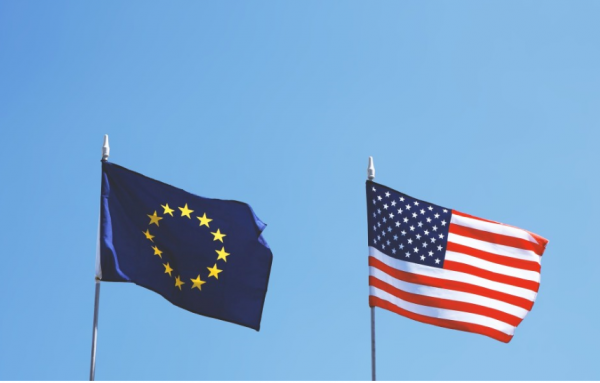
With the much-anticipated arrival of the Joe Biden administration, proposals for new policy initiatives are multiplying, including calls for a “grand bargain” in the technology and digital fields institutionalized in a “digital trade zone” of democracies or more loosely in a “technology alliance” (possibly through an expanded G7). Though unstated, the impetus behind this drive for new digital institutions is the growing power of China’s authoritarian model.

Details of a grand bargain or rules for a trade zone for the
like-minded remain uncertain, and in coming weeks and months there will
undoubtedly be reams of analysis and specific recommendations from the policy
community. This blog post will focus on the future digital relationship between
the US and EU. While a number of countries are vital for an alliance of
democracies, US-EU collaboration will form the lynchpin.
As The Economist notes, there will have to be compromises
from both sides on issues such as taxes, privacy, and competition policy. The
US will have to accept something like a primus inter pares status, but crucially, “some Europeans would have to temper their
dream of becoming a superpower that stands apart from both China and America.”
And therein lies great uncertainty, for Europe is divided and uncertain
regarding its future place and role in a world of digitally dominated
power.
There are some signs for hope. EU leaders have signaled a
desire for a “new start” in trade policy, and a mantra of incoming Biden
officials is that “multilateralism is back.” The president-elect has also
committed to a “Summit of Democracies” early in his term.
But before we enter this era of good feelings, Europe will need a serious “restart” of its own technology and trade policy objectives. European Commission President Ursula von der Leyen is determined to carry through policies that will “achieve technological sovereignty in some critical technology areas.” Thierry Breton, the EU Commissioner for Internal Market, has spearheaded a drive to put policies in place to achieve von der Leyen’s goal. Breton and others are drafting proposals to ensure Europe exerts more control over its data flows. As he has stated, “European data should be stored and processed in Europe because they belong in Europe.”
Politico notes that Breton’s case for more European data sovereignty has been bolstered by the European Court of Justice’s decision striking down the US-EU Privacy Shield in July over privacy concerns. All this matches larger proposals for a European cloud services pact or a “data strategy” that would create “data spaces” giving Europeans greater rights concerning the use and storage of their data. The goal is a single market for data that favors European companies over US giants such as Amazon, Google, and Facebook — and keeps Europe from becoming a “data colony.”
When viewed in the context of long-standing disagreements
over digital taxation and competition policy, one can see that a reset of US-EU
digital policy negotiations faces daunting obstacles.
Still, there may be hope. As this blog post was being
completed, the Financial Times reported the EU is preparing to propose a “plan for
revitalising the transatlantic partnership . . . [which] proposes new
co-operation on everything from digital regulation and tackling the Covid-19
pandemic to fighting deforestation.” We shall see . . .
Postscript: For an excellent analysis and critique of
Europe’s dream of technological sovereignty, see Matthias Bauer and Fredrik
Erixon’s May 2020 paper, Europe’s Quest for Technology Sovereignty: Opportunities and
Pitfalls.
The post A US-EU digital ‘grand bargain’ vs. Europe’s drive for ‘technological sovereignty’ appeared first on American Enterprise Institute – AEI.
